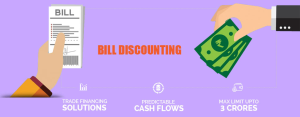Introduction

The exchange of money involves a lot of trickery and scams when the buyer is not aware of his surroundings or the deals he/she is making. Criminal activities and ethical violations have been a large part of the financial depression for several buyers over the past few decades, especially those concerned with banking, housing, and other financial sectors. To avoid the such burden and economic shock, the buyer should be informed of his rights and exercise some knowledge on his financial welfare.
Therefore in this guide, we will explore the world of mortgage fraud and the risks of predatory lending activities.
What Is Mortgage Fraud?
Fraud in itself is the deception or manipulation of facts, data, and information to make something more believable than it is in its original form. However, mortgage fraud is not just limited to predatory lending activities but to the individual borrowers presenting falsified data or material misstatements to their respective lenders to extort money. From falsifying information on mortgage application to bailing on repayments are punishable crimes subject to legal consequences.
“All mortgage fraud schemes contain a material misstatement, misrepresentation or omission relied upon by an underwriter or lender to fund, purchase, or insure a loan,” says the FBI.
Every crime has a purpose and every criminal has a motive. So, why perform mortgage fraud is the question that needs to be answered for victims to bite a bullet.

Why Perform Mortgage Fraud?
Mortgage fraud can be done either in two ways: financial or ownership gain. Performed by both lenders and borrowers alike, the end goal of mortgage fraud is a monetary benefit.
Fraud For Profit
Mortgage fraud is typically perpetrated by industry specialists or insiders who exploit their knowledge or authority to commit or facilitate the crime. The current state of affairs regarding mortgage fraud points to a major problem with collusion by industry experts including mortgage lenders, brokers, appraisers, attorneys, bank officers, loan originators, and other professionals engaged in the affairs of the industry.
Fraud for profit typically involves criminals misrepresenting themselves to steal money or equity from lenders or homeowners. The CBI investigates these cases as a priority to protect those who may be victimized by this type of crime.
Fraud For Property
Fraud for property also known as fraud for housing is a trick mastered by borrowers motivated to obtain and maintain ownership of land or housing by performing manipulation of financial circumstances when applying for a loan. The borrower may falsify, misinterpret, or inflate his income, assets, or other financial data to obtain the loan or property under pretense.
Types Of Mortgage Fraud

There are two main categories of mortgage fraud. As discussed mortgage fraud can be committed by either lender or the consumer, thus each being responsible for their subtypes.
Consumer Mortgage Fraud
Consumer or buyer mortgage frauds are a category of fraud for property or housing. These include borrowing assets with exaggerated income or exploiting the property to own ends. The most common types of consumer mortgage fraud include
Identity Theft Or False Identity
While applying for a loan, if the borrower or the applicant uses a borrowed or forged identity on any of his documents or in any case manipulates the data will be considered guilty of the compoundable offenses under Income Tax Act. Simply put, falsifying information on mortgage application is considered a punishable crime with strict legal consequences.
Air Loan
Similar to Identity theft, an individual may work together with a group of professionals to falsify his asset data by creating a fake set of documents for a nonexistent property. This may further include false addresses, phone numbers, and employment verifications.
Buy And Bail
A “buy-and-bail” occurs when a homeowner is currently on their mortgage, but the value of the property has fallen below the amount owed. In this case, the homeowner may apply for a purchase-money mortgage on another property. Once the new property has been secured, the borrower may allow the first home to go into foreclosure.
Occupancy Fraud
The borrower’s declared intent for the property (primary residence, second home, or investment property) must be verified when obtaining a mortgage. Occupancy fraud happens when the borrower deliberately misrepresents how they will use the property. For example, if the owner intends to keep the home vacant but pledges the lender the home purchased will be occupied to buy himself a favorable bank status is called occupancy fraud.
Lender Mortgage Fraud
Equity Skimming
When homeowners default on their mortgage or real estate taxes, they may be offered a loan to prevent immediate foreclosure. This is called equity skimming, and it is a form of white-collar fraud. Equity skimming occurs when the borrower takes out the loan and uses the funds to pay off their existing mortgage, but does not use any funds to pay back the new loan. This leaves the borrower with no equity in the property and puts them at risk of foreclosure.
Debt Elimination Fraud
Debt relief or debt elimination fraud is used by companies that promise to help consumers with their credit card debt, but some of these companies may not be legitimate. It’s essential to be careful when considering a debt relief service, as some of these services may scam consumers by promising to negotiate with creditors to reduce repayment obligations.
Illegal Property Flipping
Acquiring a property, having it appraised at a higher value, repairing it, and selling it quickly for a profit is classified as property flipping. While it is not illegal to do this, it can be considered fraud if the acquisition of the property involves falsifying loan documents, such as income information, appraisals, etc.
Foreclosure Rescue
Foreclosure rescue scams are predatory schemes that take advantage of homeowners who are already struggling to keep up with their mortgage payments. In most cases, the scammer will offer to pay off the foreclosure by charging a small fee. However, the person’s mortgage is not paid off this way, and they will ultimately lose their property.
Appraisal Fraud
Appraisal fraud occurs when a person deliberately overestimates the value of a property to secure a mortgage that is higher than the true value of the property. This can have serious consequences for both the borrower and the lender, as it can lead to the borrower defaulting on the loan and the lender losing money.
How To Avoid Mortgage Fraud?
Knowing terms is half avoiding fraud on a home loan scam. But unknowing procedures and not having any questions to ask your lenders or borrowers can put you at a higher risk of becoming a mortgage victim. So, here are a few ways we have complied to avoid any adverse consequences.
Get expert advice: If you are new to the topic and do not know much about loans and how they work, it is advisable to consult a trained professional on the topic or hire a middleman to do the research work for you. Check the license of the professionals you entrust the data with and do not forget to follow up with the existing market conditions.
Read T&C thoroughly: Though reading the terms and conditions can be a burdensome task, it is important to know your rights and make sure the data is accurate against the verbal agreement between both parties. If you are a borrower, ask your lenders the appropriate questions if you wish to avoid the potential risk of a home loan scam. Anything you do not understand before signing the document is likely to put you in a stressful situation later in the day when you become subject to an unexpected situation with your lender.
Ignore unsolicited offers: Unsolicited offers are often tempting but are a legal sin. Mortgage scammers target vulnerable buyers to bid their expertise on well-planned fraud. Working with your service providers or home loan experts will ensure you an advantage over the imposters in the financial industry.
Avoid upfront fees: Advance fees for lending products or services to non-lenders are not acceptable.
Verify too good to be true offers: It is illegal to guarantee loan modifications; reputable organizations would state that they cannot guarantee a change to the agreement.
Final Word
Whether you are a victim or a suspect reporting mortgage fraud is closest to the best decision you can make. Either with the local police, or the CBI (India), FBI (U.S.A), Interpol (U.K) you can report the fraud and get assistance before the damage is done.
When making such a large investment in a home, it is important to be vigilant for any signs of fraud. Choosing a reputable and trustworthy real estate agent and mortgage banker can help to avoid becoming a victim of fraud.
Loanz360 is India’s most prominent financial marketplace that offers an effortless approach to credit on a single platform. We work with large banks, NBFCs, and Private and Fintech lenders who provide a wide assortment of financial products on our platform. Whether you are looking for a personal loan, home loan, business loan, or vehicle loan, we offer you the best assistance in making your dreams come true with 100% accuracy.
If you are still not sure how, give us a call at Loanz360 and schedule a meeting with our representative, who will take you through the process of buying and financing a loan, along with comparing the market rates and finding the best option that fits your dream in your pocket without suffering the consequences of a home loan scam.







